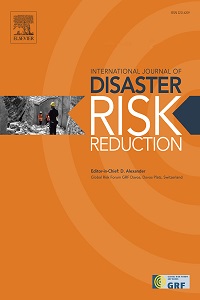Impacts of resilience interventions – Evidence from a quasi-experimental assessment in Niger
In this paper we aim to evaluate the effects of a 3-year resilience intervention (the SUR1M project in Niger) on the beneficiaries of the project. The evaluation was structured around the project's theory of change and designed to evaluate three elements along that theory of change: the types of responses beneficiaries adopt when faced with adverse events; their ability to recover from those events; and the long-term impact on their well-being, measured through their level of food (in)security. Using a quasi-experimental approach and an ex-post treatment versus control framework we found significant effects of the project on beneficiaries' capacities to engage in (positive) responses and on their abilities to recover from shocks. The analysis did not find however any significant difference between the well-being of the beneficiaries and that of the control group, suggesting that, after three years, the higher level of resilience of the beneficiaries did not translate into a clear positive impact on their well-being.

